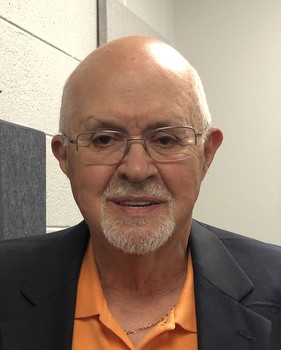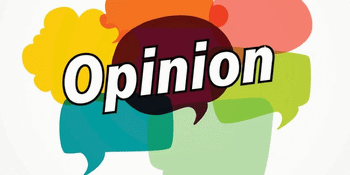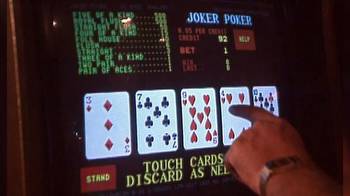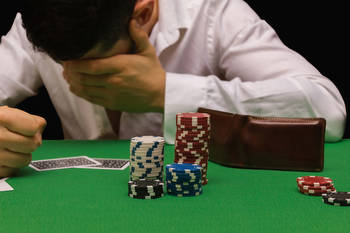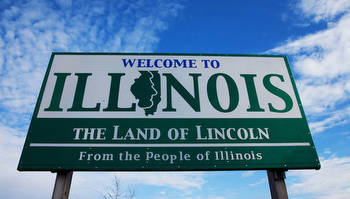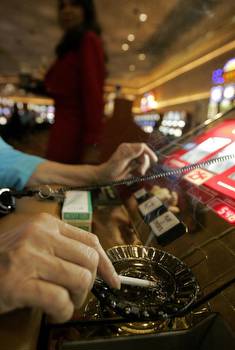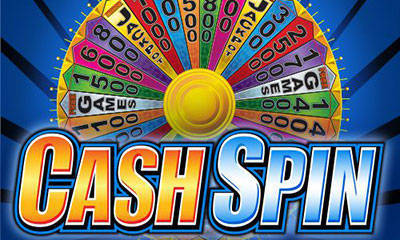We need to talk about our gambling problem

The past several years have seen an explosion of gambling in Virginia, and it is poised to become a billion-dollar industry here next year. There are new legislative proposals to further expand gambling, like allowing Virginia residents to bet on local sports teams, legalizing so-called skill games, and building more casinos. Concurrently, spending on . Reading the headlines, one would think gambling has been a huge success for Virginia.
But that’s because we don’t talk about the downsides of gambling.
Up to 6% of gamblers worldwide suffer from problem gambling, a diagnosable condition defined as by a person continuing to gamble despite negative consequences. Calls to gambling helplines are skyrocketing in Virginia: in 2022, there was a 56.7% increase in the number of calls to the Virginia Council on Problem Gambling from the previous year. This data links to the most tragic problem associated with gambling: suicide.
A 2021 study based in England found problem gambling increases the risk of suicide attempts for men nine-fold and for women five-fold. In another study, nearly 20% of suicide victims were gamblers. About 30% of individuals diagnosed with problem gambling think about suicide and about 15% of these individuals attempt suicide, the study found. The link between gambling and suicide has been demonstrated again and again across cultures. Gambling can lead to despair and desperate acts.
Unfortunately, young men, many of whom tend to be impulsive, seem most prone to developing gambling disorder. As the father of a teenage son, this especially troubles me because I hear from my son that some of his underage peers engage in online gambling. Because of the vulnerability and impulsivity of the young brain and the expanded access to online gambling, I expect the number of individuals with problem gambling — and, unfortunately, the number of young men who die from suicide — to grow.
Suicide related to gambling is driven by two main factors: indebtedness and shame. Most of us know that “the house always wins,” making gambling is a losing enterprise for almost all bettors, and that fact drives the indebtedness. Gambling is becoming a billion-dollar industry in Virginia for a reason.
The second factor driving suicide related to gambling, shame, brings me to my larger point: we need to talk about our gambling problem.
Our current societal relationship to gambling reminds me of our relationship to smoking in the 1950s and 1960s. Smoking was seen as glamorous and something successful people did. Depictions of smoking were integrated into television and movies, and cigarette advertisements were everywhere. Even though we knew about the risks of smoking for decades, it wasn’t until the Surgeon General’s report on smoking in 1964 that we got serious about the substantial health risk it posed and recognized the incorrect messages we were sending about the impacts of tobacco use. It took another couple decades to stop depicting smoking as glamorous.
Fast forward to today, and I cannot watch a sports program or listen to a podcast without hearing about gambling. The gambling outcomes of a sporting event seem more important than who actually wins on the field. As some sort of nod to the dangers of gambling, a warning about problem gambling is usually buried in small text or tacked on in rapid speech, but that seems perfunctory when compared to the bulk of the content. With ESPN’s entry into gambling, the emphasis on sports gambling has only increased. I see the similarities between our slow response to the public health dangers of smoking and our current accepting attitude toward gambling.
But, it’s not me that I am worried about. I’m middle-aged, financially secure, and too annoyed by losing to gamble. It’s the impressionable young people who are targeted by the media that I worry for, those young adults for whom gambling’s promise of riches and glory will only lead to indebtedness, shame and possible suicide.
So, how can we decrease the impact of gambling on our society?
We know marketing drives gambling, among both young people and others who would like to stop gambling. Gambling advertising should be greatly curtailed, especially when people underage may be exposed. The rules for regulating tobacco advertising provide a template.
We also need to destigmatize gambling losses. We need to recognize that, for most of us, gambling is a losing endeavor and decrease the shame around losing at gambling. Losing money gambling is normal and should be normalized. We should not celebrate winners with ad campaigns that reinforce the myth that most people win. Gambling is designed so that we lose.
Most importantly, we must ensure that minors do not have access to gambling. We would not let a minor gamble in a casino; why do we not have better protections for minors online? A simple approach would be to make minors non-liable for losses at online gambling. That market-imbedded solution would likely and quickly incentivize online gambling companies to better age-gate their products. Maybe, when it comes to young people, the house shouldn’t be allowed to win.
As gambling has quickly become pervasive in our society, we have failed to recognize the insidious impact it can have on mental health and suicide rates. Young people are especially at risk. We need to talk about this problem and implement some solutions before we lose big.
This column was originally published in the Virginia Mercury.








